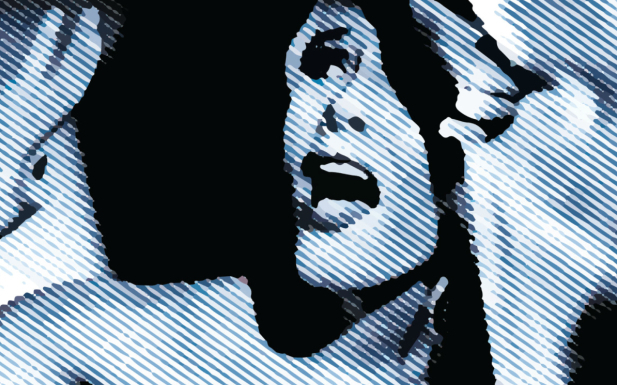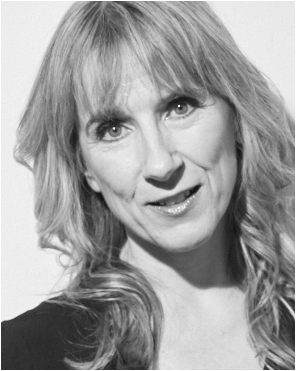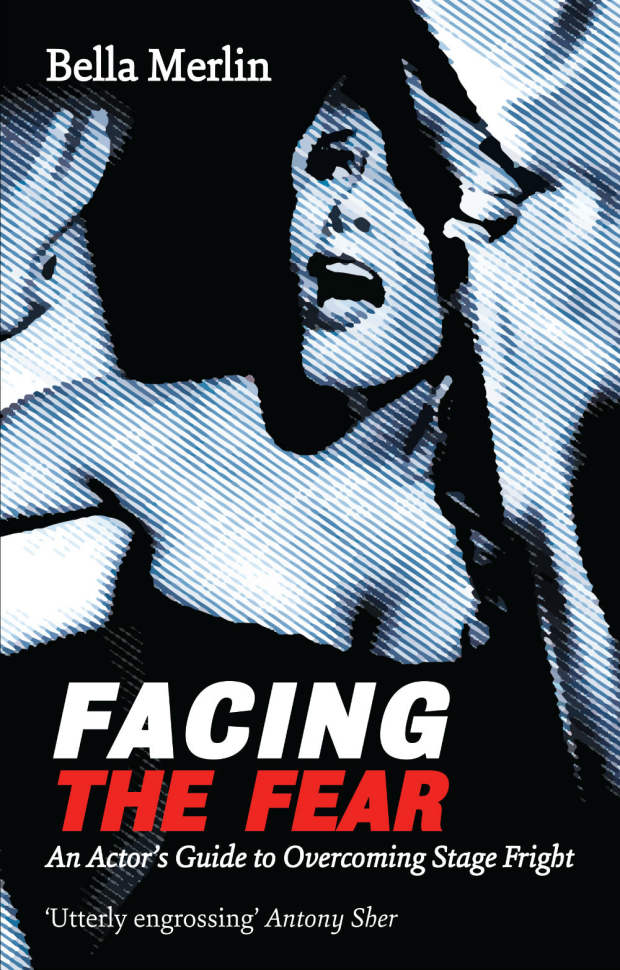Stage fright: What actually happens

Back in 2004, I was smitten with an overwhelming bout of stage fright. It was very near the end of a five-month run of David Hare’s powerful verbatim play The Permanent Way, directed by Max Stafford-Clark for his company Out of Joint in collaboration with the National Theatre. It happened quite suddenly during our first night at the Yorkshire Playhouse (in my production diary at the time I wrote of ‘a moment of meltdown’, of ‘a feeling of floating away… Into oblivion… As if I’m in a dream and nothing really matters…’), and grew worse in the final two weeks of the run. I came down with chronic laryngitis and could barely be heard. It was as if my body didn’t want me to go out onto the stage and into the spotlight any more, but, with no understudies, I had no choice.
My experience is not uncommon. Stage fright – or ‘The Fear’, as Antony Sher famously calls it – has the power to drive seasoned professionals and acolyte beginners away from the stage for months, years, and even lifetimes. Laurence Olivier suffered stage fright from his teens to his sixties. Barbra Streisand avoided live performance for twenty-seven years. Marilyn Monroe, Derek Jacobi, Ian Holm, Carly Simon, Michael Gambon, Kenneth Branagh – not to mention the great actor-trainers, Lee Strasberg and Konstantin Stanislavsky – the list of sufferers (in varying degrees) goes on and on…
But what actually happens to an actor when stage fright attacks? What’s going on in our body when our fear system revs up?
The answer is: a lot!
When our body thinks we’re in danger, a huge amount of physiological activity immediately kicks in. After all, we might have to flee or fight, so we’d better be ready to respond. To which end, more blood pumps through our arteries and our breathing quickens, in order that a surge of adrenalin can send more glucose and oxygen straight to our large muscle groups. (That’s good. Now our arms and legs are charged with energy ready for emergency action.) Then the blood vessels on the surface of our skin constrict so that our skin grows pale and slightly numb. (That’s good. It’s like a temporary layer of armour. Now we’re less likely to hurt or bleed if we’re injured in the possible fight or flight.) Arteries – lungs – blood – muscles – limbs – skin! That’s a lot of instantaneous and all-consuming activity. No wonder fear makes us feel more alive. That’s exactly what it’s trying to do – keep us alive.
It’s common knowledge that many musicians use beta blockers to reduce the physiological effects of their performance anxiety
The downside of all this major preparation for action is that our more intricate motor skills are seriously impaired. And that’s why stage fright is a major screw-up for us actors. Suddenly we can’t hold our props. Why not? Because the blood flow to our skin is constricted, so our hands have become shaky and clammy. Suddenly we’ve got a kaleidoscope of butterflies beating inside our queasy tummy. Why? Because eating isn’t a priority at this moment, so our digestive processes are shutting down. Suddenly our mouth is as dry as cotton wool. Why? Because we’re not eating, so we don’t need saliva for breaking down food. But worst of worst: our bowels feel like they’re going to explode and we seem to be dying for a pee all the time. Why, oh why? Because we might have to run away, so we need to keep ourselves as light as possible by jettisoning any extra weight. (‘Any extra weight? But I only had a banana for supper!’) As if all that wasn’t traumatic enough, now our pupils are dilating so that our vision is heightened in case we have to see our passage of escape. But the only thing it’s doing in the end is making us see more clearly those audience members – sitting out there, ravenously gazing from the cavernous darkness of the auditorium!

© The Riker Brothers
But it doesn’t stop there! This survival activity isn’t just physical – it’s profoundly neurological. So our conscious mind gets hauled into the action, too. If we’re seriously under threat, our mind needs to keep things as simple as possible, so that we only have to make one basic choice: flee or fight? Anything more complex and we could be dead by the time we’ve thought it through. In other words, our ability to process any complex, neurological challenges totally plummets. This is a disaster if we’re trying to act. How on earth can we do our job if we can’t process complex, neurological challenges – like remembering our lines and engaging with the script’s emotional nuances? And it doesn’t stop there. Often, stage fright makes you feel light-headed – that’s because in big-fear, real-life, stress situations, our neural framework often maxes out. It’s almost as if the whole fear experience is far too monumental for our brain to compute. So instead of trying to process whatever’s going on, our brain ensures that we don’t have to process anything. And so we faint – or freeze – or at least, we come close to it. (Which, I suppose, is why I felt in The Permanent Way that I was in a strange floating-away place.)
Our ability to process any complex, neurological challenges totally plummets
With so much going on chemically and neurologically in our bodies and brains, it’s no wonder we experience stage fright like some massive, inner earthquake. Because it is! Which is why we have to seek ways of befriending the Fear so that we can lessen its grip. If we don’t, its long-term effect on our lives can be very destructive – both physically and mentally.
Despite that, however, we actors don’t talk about our stage fright very often. After all, there’s a certain shame attached to it. We feel our professionalism is at stake: we might be found wanting or unreliable – or, at worst, unemployable. It’s common knowledge that many musicians use beta blockers to reduce the physiological effects of their performance anxiety – though I’ve never heard an actor share this practice. Maybe that’s because our art relies on us being absolutely present to our feelings, sensations, and emotions. Acting is all about opening our heart and being emotionally thin-skinned, whereas beta blockers are all about blocking our heart’s adrenalin receptors. That said, maybe my actor-friends are taking beta blockers and it’s just another ‘dirty secret’. Who knows?

My new book, Facing the Fear, addresses this silence. It provides – amongst other things – an outlet for actors to share their stage fright and to understand that it’s not shameful. It’s not unprofessional or ‘amateur’. It’s normal. It’s human. And it’s part of the profession. So while the book will enable directors, writers, stage managers, critics, audiences – in fact, anyone engaged in making or watching performance – to have more understanding of what acting really entails, ultimately it’s for all fellow actors and companions on the path. How much more could we help each other if we knew what we might be secretly going through?
By Bella Merlin
This is an extract from Facing the Fear: An Actor’s Guide to Overcoming Stage Fright by Bella Merlin, £12.99 paperback, published by Nick Hern Books.










